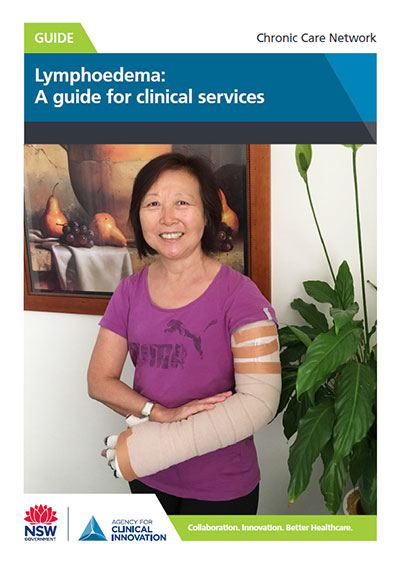
Published: September 2018
Lymphoedema is a chronic swelling of a limb or body region. It is associated with significant morbidity, loss of function and, on rare occasions, mortality.
Poor management of lymphoedema can:
- have detrimental effects on a person’s physical and psychosocial health
- cause pain and discomfort
- increased susceptibility to acute cellulitis, requiring hospitalisation and antibiotic therapy.
Lymphoedema: A guide for clinical services identifies best-practice management of lymphoedema as shown in the following seven principles:
- Early identification, education and monitoring of patients at risk of lymphoedema
- Identification, assessment and diagnosis of lymphoedema by a trained health professional
- Patient-centred education to enable self-management of lymphoedema
- Comprehensive treatment tailored to patient needs and clinical reasoning
- Correct provision of compression garments according to clinical recommendations
- Effective management of lymphoedema-associated cellulitis, including prevention of recurrence
- Effective response to inpatients with lymphoedema
This document provides guidance for NSW local health districts, speciality health networks and health professionals to support optimal care for people affected by lymphoedema.